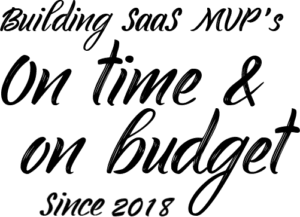Rob highlights podcasting for startups, working on Microconf, an in-person and online community for bootstrap founders from different parts of the world, and Tinyseed, the inaugural startup accelerator that strives to facilitate success for SaaS bootstrappers as his key roles. He says he spends most of his time on the latter two. How does he manage? Find out from the podcast.
Unlike other accelerators in the market today, Tinyseed is remote, and its terms enable people to operate a profitable company. He gives extensive details about Tinyseed in this podcast which you cannot afford to miss.
Together with his team, Rob has started numerous investments with their 59 launching in the next few weeks. How does Rob identify these startups? Doing due diligence is a crucial part of ensuring that you are dealing with reliable people.
Both Tinyseed and Microconf come with an application process that customers should fill before becoming part of the accelerator program. Rob says they do interviews, make offers, and give their applicants a terms sheet to fill. Once SaaS founders agree to the terms and conditions, they become part of the accelerator. Rob and his team then fund them.
Rob mentions that many of the companies they deal with are not interested in funding but want mentorship, guidance, advice, and the proper SaaS network. Before investing in a potential company, Rob's team considers various factors. However, he only focuses on the three P's, people involved, product fit, and price sensitivity or pricing.
Potential companies have to answer questions about their businesses and competition. Listen to the podcast to figure out some of the questions that companies must answer before being considered.
During the application process, aspiring companies must describe their unique advantage over competitors and their average revenue MRR per user. It is at this point where Rob begins his rating on a one to five scale. Rob mentions the importance of MRR for companies, and you can learn about it in the podcast.
To qualify for the accelerator program, applicants should have at least $500 in MRR, but Rob says they prefer SaaS founders with between $800 and $1,000 on the lower end. He insists that they can still fund people with lower amounts.
Running a business comes with various challenges, and Rob says there is no blueprint for doing it right. While entrepreneurs may have numerous ideas, they are never sure they will work, making it one of the core challenges for entrepreneurs on their zero to 5000 MRR phase.
Apart from needing guidance, SaaS founders require reassurance to counter challenges along the way and work towards success. The Tinyseed Playbook defines funnels and guides SaaS founders, helping them understand the importance of pricing their products right. This playbook is ideal for -entrepreneurs in their 5,000 to 15,000 MRR phase. In this case, the entire team collaborates to identify what works best for the companies and ensure they are doing things right.
Content marketing is a critical factor that Rob and his team consider before collaborating with SaaS founders. However, he mentions that the strategy is ideal for companies within the lower price range. He also discusses the role of LTV (Lifetime value) and SEO.
Pricing is one of the factors that Rob holds close to his heart. He says that a huge percentage of his candidates admit that their pricing is either overly low or off in a way. Listen to the podcast for a more elaborate explanation of why pricing can be a difficult task and what entrepreneurs can do to get it right. Businesses that have a higher price tend to grow faster, according to Rob. Find the reason why from the podcast. Rob concludes the podcast by talking about launching Tinyseed in the UK.



